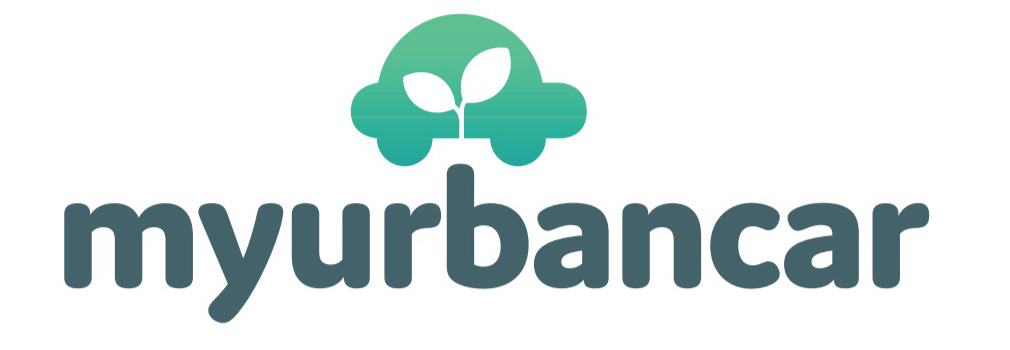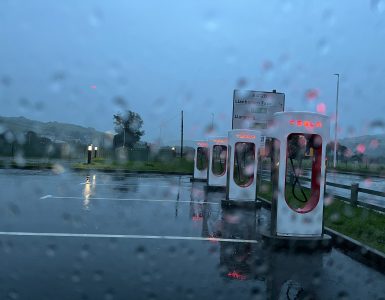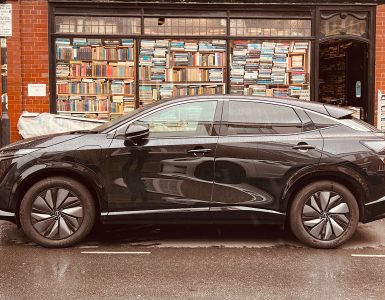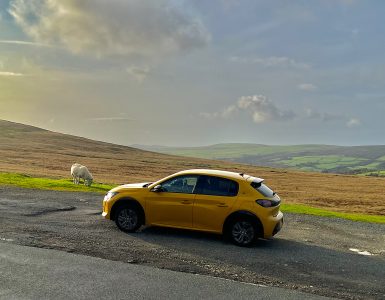It might seem a strange time for someone who hasn’t driven a van in decades to be predicting the end of the diesel van now. After all diesel van sales (lockdown aside) have hardly ever been higher with around 97% of sales while electric vans have hardly touched the 1%.. most of the rest are petrol)
There are lots of EV vans that have been “launched’ over the past couple of years but when you look at what affordable EV vans with a decent range that can actually be delivered.. well it’s pretty much just the Nissan e-NV200 first sold in 2013 but now with an improved WLTP range of 124 miles and a couple of small vans.
Most of the big name brands in the field have nothing at all (Ford) or have massively overpriced electric conversions from old diesel vans (VW, Mercedes, Renault) some with official range under 100 miles! To put that in perspective that means some have a real world range of around 70 miles so if you start to look for a charger at 20 miles range thats a useable 50! Some don’t even have fast charging so charging up could take several hours!
That is all about to change.

What you need to look for in an EV van
I’ve learned a little about EVs and what specs work so I’ll concentrate on that and leave you to look at the “what is a good van” stuff.
- Battery size – if you want an range of over 150 miles then 40-60kWh for a smaller sized van or 50-80kWh on a medium or larger van is about right
Don’t go bigger.. the battery weight will cut into payload, charge time and range.
Equally going smaller really compromises where you can go with ease - Charging speed – this should always be bigger than the battery size – the closer to 2x or more the better. A van with a 50kWh battery than can charge at 100kW should be able to charge from 20% to 80% in 30 to 40 mins.
Why is charge speed important? Well it means a return journey from London to Birmingham starting on a full charge only involves a 30 -40 mins of charging stops -time for a coffee & bathroom stop. Pick a short range slow charging van and you could add hours to that time – more of a 3 course meal and settling down to read “War and Peace”!
Why diesel vans are on borrowed time
- Diesel vans are amongst the dirtiest vehicles on UK roads. On average the diesel vans you see on our urban roads produce 12-15x the toxic NOx air pollution of a petrol car. It is only a matter of time before Euro 6 vans become liable for ULEZ charges. In Paris they are set to ban all diesel vehicles by 2025.
- diesel vans are just as polluting when parked– a clear majority of diesel van drivers are obsessive about keeping the engine idling when parked up when they are in or near their van. Having a sandwich? Making a call? Getting out of the van to do a delivery or chat to a workmate for half an hour? Doing paperwork? Its as if many van drivers find diesel clatter and smell reassuring like some kind of lethal comfort blacket. There is no logic to this and it puts the men, women & children around them into hospitals & coffins.
- Some ULEZ policy failures in London led to a temporary increase diesel van sales. Hard to believe but yes.. Sadiq Khan the formidable air quality champion caused a spike in diesel van sales. How? Well, Euro 5 diesel vans registered before 2015 had to pay £12.50 a day in ULEZ charges to enter London. There was therefore a rush to replace old diesel vans. Unfortunately hardly any affordable or good EV vans were available. So all the old diesels were replaced with…new Euro 6 diesels vans that were also massively polluting. This was a mammoth policy mess as these vans will be polluting the air somewhere on UK roads for a decade or more. Nevertheless the ULEZ is up for expansion in London to encompass the whole of the North and South Circular and criteria will at some point include all diesels including Euro 6. This means £27.50 to drive in central London and £12.50 24hrs a day 7 days week within the enlarged zone. We do not have a date for all diesels to be included but would estimate 2025.
- The Mayors ULEZ exemption for Euro 6 diesels gave drivers the false impression the new vans were clean. It was exacerbated by the offer of TFL grants of £7,000 for old dirty diesel vans to be replaced with new ones! There is £9,500 on offer to switch to an EV but the small gap between this and the diesel grant pushes buyers to the cheaper dirty van option rather than equalising pricing.
- There was a real shortage of competitive electric vans. Essentially EV vans were rolled out to a few fleets & on a small scale to some small local businesses usually with the help of a generous grant. Van makers were in no rush to change this as, thanks to the ULEZ, diesel vans were flying out of the showroom door. Why spoil these sales with less profitable zero emission EV vans when polluting ones were doing so well!
So why are EVs about to disrupt diesel vans sales? Well finally some decent new EV vans are coming on sale. In addition EVs have key advantages for an urban van
- Diesels typically cost around £16 per 100 miles to fuel. Even high performance EVs charging on a public network at around 24p kWh can do 100 miles for £6 or £7. Charge at home you can get this down to under £2. Thats 1,000 miles for £20 to £70
- EVs have no gears, clutches, particulate filters or oil changes. So maintenance and servicing costs should be much lower. EVs also have only about 20 moving parts, compared to around 2,000 on a diesel. So there is much less to go wrong
- another plus is EVs are smoother to drive with power available quietly and instantly. Not only are they more relaxing, they also put energy back in the battery when you slow down. This “regen” means even more efficiency, a relaxed way to drive and less money replacing brake pads because they get much less use
- EVs are zero emission so they are also healthier for drivers and anyone around them. Unlike diesel vans an EV doesn’t have an exhaust that harms unborn babies in the womb, send children to A&E with breathing difficulties or harm almost every cell in the human body.
- resale values are also better (and rising) as people realise EVs are reliable even on high mileages and batteries rarely fade in power and are guaranteed for 8 years by most manufacturers.
- another big saving is in congestion charge, VED and ULEZ charges. In addition grants are available.
Nissan e-NV200
On sale till now

The Nissan is not new and doesn’t get rave reviews for driving experience but it is fully electric and offers WLTP range of 124 miles. Unlike most other models the Nissan can be ordered and delivered now.
Earlier models had much lower range but have gained an enthusiastic band of owners who claim not only low charging costs but also very low other operating costs including servicing, brake pads etc. Reliability and fault rates are claimed to be much less than diesel vans. On the debit column the new models lack battery cooling so don’t expect to rapid charge more than once a day.
Here come the disrupters
There are 2 all new Electric vans set to put EVs seriously in contention in the van market with decent range, charging speed and price. They are the Maxus e-deliver 3 in the smaller segment and a new pure electric version of the Vauxhall Vivaro-e, soon to be joined by its Peugeot and Citroen equivalents.
Maxus e-Deliver3
This is first EV van on sale in the UK that was designed to be fully and only electric . It comes with 2 battery sizes and in short and long wheelbase versions. In case you don’t know the brand it used to be LDV but has just taken on same the name as its Chinese owners. The van is made In China by SAIC Maxus.
Specs and full prices haven’t been fully confirmed but charging time from 10-80 is set to be 45 mins on the bigger 52.5kWh battery and 30 mins on the smaller 35kWh
Vanorama Maxus eDeliver3 review
WLTP range is rather average in the smaller battery versions.. around 98 miles in the SWB and 93 miles in the LWB. With the 52kWh battery however this van will do 149 miles in the SWB or 143 miles in the LWB version. Best ignore the 200 mile range claim in the video..it was based on a very optimistic NEDC test which will be near impossible to replicate.
So whats big about this little van? Well it’s efficient which means the bigger doesn’t have to too big or heavy. This helps with battery weight which helps payload. It also helps on cost.
Cost is still to be confirmed but the ex vat but after Government grant price should be around £26k for the bigger battery SWB & £28.8k for LWB
Smaller battery models should start at £24k for SWB and £26k for LSB. These figures are still to confirmed.. sources span from around 22k to 36k!
Parkers E-deliver3 initial review
Vauxhall Vivaro-e

The image above summarises the spec.
- 2 battery sizes (50kW and 75kW) offer a range of 144 miles and 206 miles with rapid charges times of 30 mins and 45 mins
- 2 body variants and lengths are available in “dynamic” and “elite” trim
- List pricing ex VAT on the 50kW shorter version in dynamic starts at £35,028.33 at launch while the 75kW version comes in at £39,528.33 That compares with £25,468.33 for the same dynamic with polluting diesel power. These prices are list so discounts should be available along with a 20% EV van grant (up to a max value) of £40,000 ie max grant of £8k. 20% of £35k should take the price down to just over £28k and if you scrap an old diesel in London and qualify the Mayor will provide up to another £9,500 grant, potentially taking the list price under £20k for the smaller battery and around £23k for the longer range version
- not only do the grants bring it close to the diesel price, the running costs including charging and maintenance should be a small fraction.
- Full details on e-Vivaro launch specs are available from the fleetpoint website here
- British Gas has announced it will buy 1,000 electric Vivaro-e vans and intends to add to this with an order for smaller Combi-e vans when they are launched in 2021. They aim to have a 100% zero emission electric van fleet by 2020.







[…] […]
[…] […]
[…] […]
[…] Not only will you have 10 years worth of filthy exempt diesels but by then these cars will be older, less well maintained & probably with non functioning diesel particulate filters spewing out particulate. In other words without changing the criteria diesel emissions are likely to plateau and then worsen sharply, limited only by falling new diesel car sales. Diesel share of car sales declined from 50.1% in 2014 to 42% in 2017, then 31.7% in 2018 and 26.6% in 2019 (these include MHEV diesels). Diesel share in 2020 to November are at 20.1%. Worth remembering though over 95% of van sales are still diesels and it is vital new vans switch to electric now the choice of models is finally good. […]